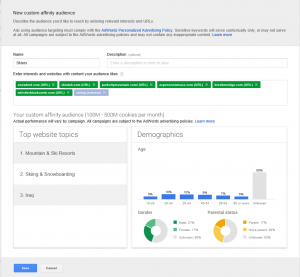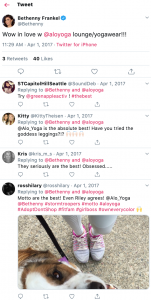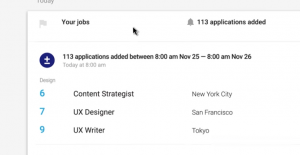 I remember my early days of blogging, first on Bloglines (yes, I’m that old), then TypePad and finally WordPress, which is the content management system I recommend today. It felt a little odd putting my thoughts out into the world, even though I had been writing for magazines for years, and publishing articles on my own little text-only website. Unlike most of the articles on my site, my blog posts were written in the first person, and they could be commented on and even shared, which was slightly intimidating.
I remember my early days of blogging, first on Bloglines (yes, I’m that old), then TypePad and finally WordPress, which is the content management system I recommend today. It felt a little odd putting my thoughts out into the world, even though I had been writing for magazines for years, and publishing articles on my own little text-only website. Unlike most of the articles on my site, my blog posts were written in the first person, and they could be commented on and even shared, which was slightly intimidating.
Fast forward to 2016, when blogging is as natural as breathing to me (although if I breathed as often as I blogged, I’d need CPR).
In the class I teach at the University of Toronto School of Continuing Studies, Foundations of Digital Communications Strategy and Social Media, the students must create a blog and publish 10 posts. Some are excited by this idea from day 1; others are trepidatious. I try to calm their anxieties early in the course by sharing some of the things their fellow students have told me at the end of the eight sections of this course that I’ve taught so far:
1. It can be difficult to start blogging.
You have to choose your topic and your theme, and decide on at least the beginnings of a strategy. But that’s not the hard part. Finding your voice is. Do you write in an academic tone, a conversational tone? Authoritative? How much of yourself do you put out there? How much of your personality do you reveal? Each blogger has to answer these questions for herself. It may take a few posts before you hit your stride.
Tip: Develop an editorial calendar so you’re not staring at a blank screen each time.
2. The technology isn’t as daunting as I thought.
The basics of a free WordPress.com blog are pretty straightforward. Many students are pleasantly surprised to learn the technology is not an obstacle. Others may get frustrated, depending on the theme they choose and the widgets they try to add.
Tip: Watch WordPress tutorials before you begin. Don’t be afraid to do a Google search for a specific issue you’re facing. Chances are someone has already solved it.
3. Hey, I really like writing. Who knew?
I can’t tell you how many students have said at the end of the class: “I can’t believe it. I really like writing! I haven’t written anything good since my journal in high school!” Or, they say, “Finally, I get to write about topics I care about. At work I have to cover the new HR policies or government regulations.” In their blogs they’re talking about European travel or PR in sports, baking with kids, or knitting for men (the latter is a topic one of my students has chosen this term).
They find the blogging medium liberating as a means of expression, as long as they don’t let their internal critic take over. In other words, bang out a first draft offline, then edit yourself, then post. If you edit yourself while you write, you’ll agonize over every sentence. (And writing offline ensures you won’t lose your draft if your browser crashes.)
Tip: As Anne Lamott says in her lovely book on writing, Bird by Bird, don’t be afraid of a sh*tty first draft. Or as my friend Marcia Ross said in a recent interview, just barf out that first draft. Then edit yourself without mercy.
4. Guess what? I won a new client, thanks to my blog!
No one can guarantee that you’ll generate leads from your blog. In fact, some novice bloggers are disappointed by their readership in the early stages. And yet, a blog can be a powerful way to get known, get remembered and get business. If you want to establish thought leadership, be sure to blog, and to amplify your blog posts via social media.
Tip: If you are in business, or communicating on behalf of a nonprofit, be sure you have an overall marketing or communications strategy in place before you start blogging. You can succeed only if you know why you’re blogging and whom you’re blogging for.
5. Life gets busy and blogging falls behind.
I know a few bloggers whose consistency blows my mind (like Mitch Joel, Shel Holtz, and Gini Dietrich, to name a few), but for most of us mere mortals, it’s easy to let work and life and kids and fun and gym workouts (OK, maybe not that last thing) get in the way of blogging. Don’t beat yourself up over a gap in your blogging; just get back to it.
Tip: If you fall off the blogging wagon, step back and look at your strategy. Perhaps your execution was off, or maybe your strategy itself needs revisiting. In other words, if blogging was not working for you (and that’s why you let it lag), you may need to tweak what you’re doing.
There are plenty more benefits to blogging, but these are the main ones cited by our students.
What about you? Why did you start blogging? And why do you continue?
Digital & Social Articles on Business 2 Community(64)







